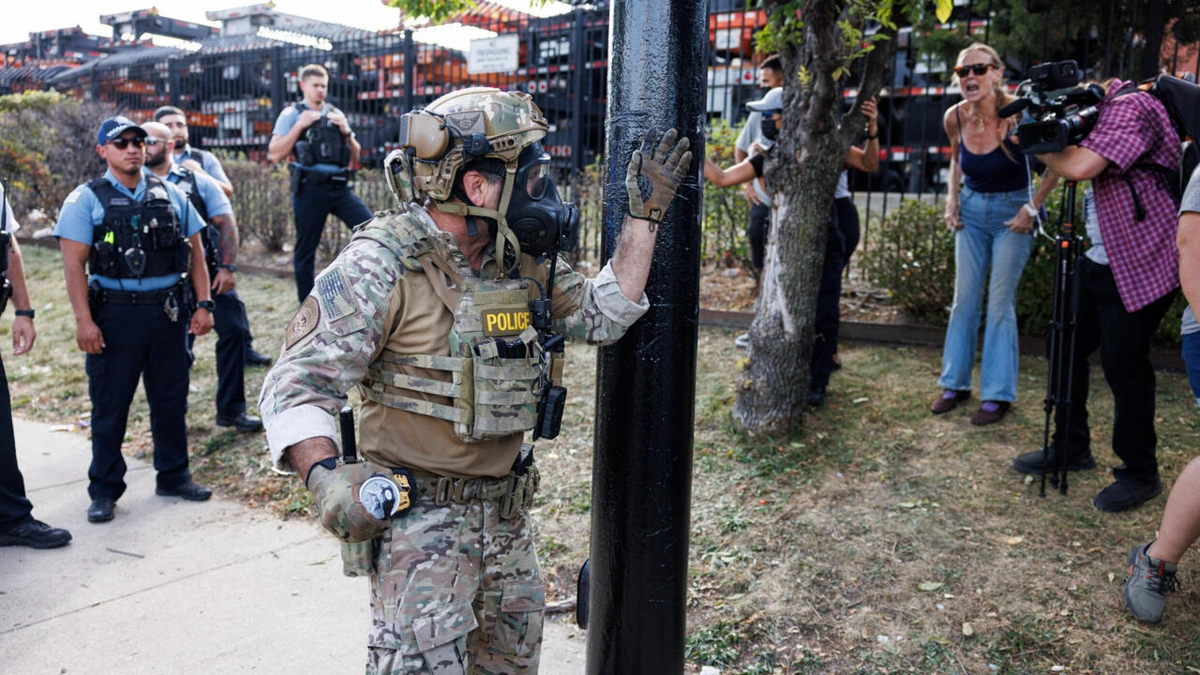The question of whether a U.S. president can deploy troops – Trump troops or otherwise – is rarely a simple yes or no. It’s a tangled web of legal precedent, historical context, and political considerations. Let’s be honest, it’s a question that pops up every time a president wants to flex some muscle, both domestically and internationally. But what’s really going on here? What are the actual limits, and why does it even matter?
The War Powers Resolution | A Check on Presidential Power?

Ah, the War Powers Resolution of 1973. Sounds important, right? It is. Enacted in the wake of the Vietnam War, this act was designed to limit the president’s ability to commit U.S. forces to armed conflict without congressional consent. The idea was to prevent another drawn-out war without proper authorization. Here’s the thing: the War Powers Resolution requires the President to notify Congress within 48 hours of committing armed forces to military action and forbids armed forces from remaining for more than 60 days, with a further permissible 30-day withdrawal period, without an authorization of the use of military force (AUMF) or a declaration of war.
But, (and this is a big but) presidents have consistently skirted around it. They often argue that the Resolution is unconstitutional, infringing on their power as Commander-in-Chief. According to the Cornell Law School Legal Information Institute , the constitutionality of the War Powers Resolution continues to be debated to this day.
Domestic Deployments | A Different Battlefield?
Now, let’s talk about deploying troops within the U.S. This is where things get particularly sensitive. The Posse Comitatus Act generally prohibits the use of the U.S. military for domestic law enforcement purposes. The Posse Comitatus Act is a United States federal law that limits the powers of the federal government to use the military for law enforcement purposes. What fascinates me is how often we forget this exists! There are exceptions, of course. For example, troops can be deployed in cases of natural disaster or insurrection, but even then, it’s a legal minefield. Think back to instances where governors have requested National Guard assistance during protests. That’s a different ballgame than a president unilaterally sending in active-duty military.
A common mistake I see people make is thinking the National Guard operates solely under federal control. While they can be federalized, they often answer to the governor of their respective state, creating a crucial layer of state sovereignty.
The Insurrection Act | A Presidential Trump Card?
Here’s where it gets interesting: the Insurrection Act. This is a federal law that empowers the President to deploy troops domestically in cases of insurrection, rebellion, or domestic violence that hinders the execution of federal law. What the Insurrection Act says is if a state fails to protect its citizens’ constitutional rights, the president can step in. It’s a powerful tool, no doubt, but its use is highly controversial and fraught with political risk.
I initially thought this was straightforward, but then I realized how much room for interpretation there is. What constitutes an “insurrection”? Who decides when a state is failing to protect its citizens? These are questions that can be – and have been – debated endlessly.
Historical Precedent | A Mixed Bag
Looking back at history, we see a mixed bag of presidential actions. Some deployments were widely accepted, others sparked intense controversy. President Eisenhower sending troops to Little Rock, Arkansas, to enforce desegregation is one example. More recently, we’ve seen debates over the use of the National Guard during civil unrest. The key takeaway? There’s no single, universally agreed-upon standard. Each situation is unique, and the legal and political considerations are constantly evolving.
But, history teaches us that whenever federal troops are deployed, they are usually not well received.
Consider also recent local events , and how people reacted to any perceived overreach from the authorities.
The Political Fallout | The Real Battlefield
Ultimately, the question of whether a president can deploy troops is often less important than whether they should. The political fallout can be immense. Deploying troops, especially domestically, can be seen as an overreach of executive power, leading to public backlash and even legal challenges. And let’s be real, public opinion matters – a lot. No president wants to be seen as trampling on civil liberties or militarizing the police. The president’s power to deploy military force is always at odds with the public’s desire for peace.
What fascinates me is how the deployment of troops can so radically shift political discourse and really galvanize opposing fractions. When the military is deployed, presidential authority grows, whether people like it or not.
What happens if US troops are deployed unjustly? According to severalCouncil on Foreign Relationsarticles, the global and domestic impact could be severe.
Ultimately, this power is not absolute, and is subject to a variety of challenges.
What if the deployment creates a bigger problem than it solves? It’s a question any president must ask themselves before making such a weighty decision.
Consider other recent news , and you’ll see that authority is always open to interpretation.
FAQ
What is the War Powers Resolution?
It’s a federal law passed in 1973 limiting the President’s ability to deploy troops without congressional approval.
Can the President deploy troops domestically?
Generally, no, due to the Posse Comitatus Act, but there are exceptions for natural disasters or insurrections.
What is the Insurrection Act?
It’s a federal law allowing the President to deploy troops domestically to suppress insurrections or enforce federal law.
Is the President’s power to deploy troops unlimited?
No, it’s subject to legal and political constraints, including the War Powers Resolution and public opinion.
Who controls the National Guard?
They can be under state or federal control, depending on the situation.
Why is deploying troops domestically controversial?
It can be seen as an overreach of executive power and a violation of civil liberties.




